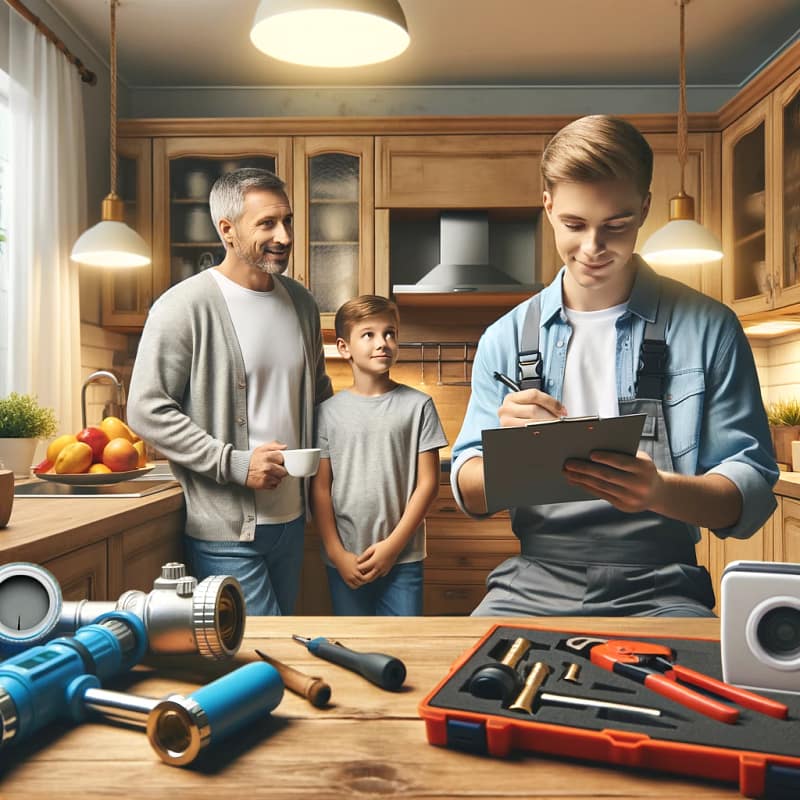Water leaks can cause significant damage to your home, leading to costly repairs and potential health hazards. By taking proactive steps to maintain your plumbing system and prevent leaks, you can protect your property and ensure a safe and comfortable living environment. This comprehensive guide provides practical tips and techniques to help you prevent leaks at home.
Understanding the Importance of Leak Prevention
Health and Safety
Water leaks can create a breeding ground for mold and mildew, which can have adverse effects on your health. Preventing leaks ensures a healthier living environment by reducing the risk of mold growth and water contamination.
Financial Savings
Repairing water damage can be expensive. By preventing leaks, you save money on repairs, water bills, and potential damage to your personal belongings. Regular maintenance and early detection of leaks can significantly reduce these costs.
Regular Plumbing Inspections
Schedule Routine Checks
Having your plumbing system inspected by a professional at least once a year can help identify potential issues before they become major problems. A thorough inspection includes checking pipes, faucets, water heaters, and other plumbing fixtures for signs of wear and tear.
DIY Inspections
In addition to professional inspections, you can perform regular checks on your own. Look for visible signs of leaks, such as water stains, damp spots, and mold growth. Pay attention to unusual sounds like dripping or running water, even when all fixtures are turned off.
Maintain Your Plumbing System
Fix Drips and Leaks Immediately
Small drips and leaks can escalate into larger problems if left unaddressed. Fixing these issues promptly prevents further damage and reduces water waste. Tighten loose connections, replace worn-out washers, and repair damaged pipes as soon as possible.
Insulate Pipes
Insulating your pipes helps prevent them from freezing and bursting during cold weather. Use foam pipe insulation to cover exposed pipes, especially in unheated areas like basements and attics. Proper insulation not only prevents leaks but also improves energy efficiency.
Monitor Water Pressure
Check and Adjust Water Pressure
High water pressure can strain your plumbing system, leading to leaks and pipe bursts. Use a water pressure gauge to check the pressure in your home. The ideal water pressure is between 40 and 60 psi. If the pressure is too high, install a pressure regulator to keep it within the recommended range.
Install a Water Softener
Hard water can cause mineral buildup in your pipes, leading to clogs and leaks. Installing a water softener reduces mineral deposits, extending the lifespan of your plumbing system and preventing leaks caused by blockages.
Use Leak Detection Devices
Install Leak Detectors
Leak detectors are devices that alert you to the presence of water in areas where it shouldn’t be. Place them near water heaters, washing machines, and under sinks to receive early warnings of potential leaks. Some advanced leak detectors can even shut off the water supply to prevent further damage.
Smart Water Monitoring Systems
Smart water monitoring systems track your water usage and detect unusual patterns that may indicate a leak. These systems can send alerts to your smartphone, allowing you to take immediate action to address any issues.
Properly Maintain Appliances
Regular Maintenance
Appliances like washing machines, dishwashers, and water heaters can develop leaks over time. Regularly inspect these appliances for signs of wear and tear, such as cracks in hoses or corrosion around connections. Replace worn-out parts promptly to prevent leaks.
Follow Manufacturer Guidelines
Adhere to the maintenance guidelines provided by the manufacturers of your appliances. Regularly clean filters, check hoses, and ensure that connections are secure. Proper maintenance not only prevents leaks but also extends the lifespan of your appliances.
Landscape with Leak Prevention in Mind
Proper Drainage
Ensure that your yard has proper drainage to direct water away from your home’s foundation. Poor drainage can lead to water pooling around your house, increasing the risk of leaks and foundation damage. Install gutters, downspouts, and French drains to manage water flow effectively.
Choose Plants Wisely
Select plants that require minimal watering to reduce the risk of leaks in your irrigation system. Native plants are often a good choice as they are adapted to the local climate and typically need less water.
Conclusion
Preventing leaks at home is essential for maintaining a safe, healthy, and cost-effective living environment. By following the tips outlined in this guide, you can protect your home from water damage, reduce repair costs, and ensure the longevity of your plumbing system. Regular maintenance, timely repairs, and the use of modern leak detection devices are key strategies in leak prevention. Start implementing these practices today to safeguard your home against leaks.
FAQs
How often should I have my plumbing system inspected? It’s recommended to have your plumbing system inspected by a professional at least once a year to identify potential issues early and prevent leaks.
What are the signs of a water leak? Common signs of a water leak include water stains on walls or ceilings, damp spots, mold growth, and unusual sounds like dripping or running water when all fixtures are turned off.
How can I reduce water pressure in my home? If your water pressure is too high, you can install a pressure regulator to keep it within the ideal range of 40 to 60 psi.
What is the best way to insulate pipes? Foam pipe insulation is an effective way to insulate pipes, especially in unheated areas like basements and attics. This helps prevent freezing and bursting during cold weather.
Are leak detectors worth the investment? Yes, leak detectors can provide early warnings of potential leaks, preventing significant water damage and costly repairs. Some advanced models can even shut off the water supply to stop leaks.
How can landscaping help prevent leaks? Proper drainage and choosing plants that require minimal watering can reduce the risk of leaks in your irrigation system and prevent water from pooling around your home’s foundation.
By implementing these strategies, you can effectively prevent leaks and maintain a safe, efficient, and leak-free home.

